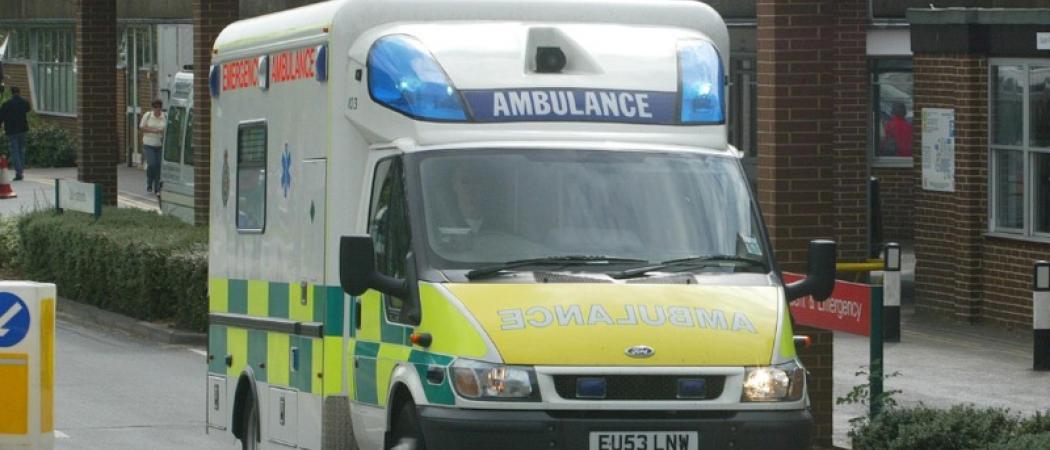UK doctors think Britain’s exit from the European Union will be very bad for the NHS, reveal the results of a study from UCL, the London School of Hygiene & Tropical Medicine (LSHTM) and Queen Mary University of London.

The study, published online in the Journal of Epidemiology & Community Health, anonymously surveyed UK doctors asking questions about their political beliefs and voting patterns. It is the first large scale study to look at the political opinions of UK doctors.
The research found that as a group, UK doctors are predominantly left-wing and liberal-minded. But high earners tend to lean more to the right of the political spectrum, while surgeons are twice as likely as other specialties to express right-wing views, the responses show.
Against a backdrop of major upheavals in health and social care as well as the political landscape in the UK, the researchers wanted to find out about doctors' political beliefs and voting behaviours.
To reach as representative a sample as possible, the researchers collaborated with the online professional network, Doctors.net.uk, and validated proportionality of respondents against records from the professional regulator, the General Medical Council (GMC).
GMC members were directed by email to the survey link, which was open for a week following the 2017 UK general election. The link was also sent to a wide range of specialty associations and relevant Facebook groups.
In all, 1,172 respondents, representing 0.4% of the 282,304 doctors licensed to practice in the UK in 2016, were included in the final analysis. Nearly half (45%) were women. Most respondents had qualified in the UK, lived in England, and worked in the NHS. One in three (36%) was a consultant, around one in five was a GP, and just under 30% were junior doctors.
On a scale of 0 (extremely left wing) to 10 (extremely right wing), the average score was 4.
Surgeons were twice as likely to register a right wing score, while psychiatrists and public health doctors were half as likely to do so. And junior doctors at specialty training entry level (ST3) and above were the least likely to express right wing views relative to all other grades.
Nearly two thirds (just over 62%) of respondents described themselves as liberal while nearly one in four (23.6%) said they were conservative.
There was a shift to the left between the 2015 and 2017 elections, with the proportion of doctors voting Labour rising from just over 29% to just over 46%, while the proportion voting Conservative fell from just over 26% to just under 20%.
Among those who were ineligible/unable to vote in 2017, nearly a third (just under 30%) said they would have opted for a Labour candidate. Voter turnout among doctors for both elections was significantly higher than among the electorate.
Doctors overwhelmingly backed staying in the EU, with nearly eight out of 10 voting to remain in the 2016 referendum.
Virtually all respondents agreed that EU nationals working in the NHS should be allowed to stay in the UK after Brexit. And most thought Brexit would be very bad for the NHS, irrespective of grade, income, or specialty, giving it an average score of two on a zero (worst outcome) to 10 (best) scale. Nearly 83% scored it below five.
In terms of their views on health policy, most backed minimum unit pricing for alcohol (74%); charging patients not eligible for NHS treatment for non-urgent care (70.5%); and protected funding for the NHS (87%). And just under 66% thought there was too much private sector care funded by the NHS.
“Given the political turmoil in recent times and the importance of doctors in the functioning of the health service, we felt it was important to try to investigate the political views of doctors,” said senior author, Dr Delan Devakumar (UCL Institute of Global Health).
“Most doctors described themselves as left wing and liberal, which generally aligned with their views on health policies. They were also strongly pro-remain in the EU referendum and overwhelmingly think Brexit is bad for the NHS. Differences were seen between specialities, with surgeons tending to have more right wing views and psychiatrists and public health doctors being more left wing.”
The authors acknowledge limitations of the study, including that despite their best efforts, the sample may not be fully representative, so should be taken only as an indication of the views of the UK medical workforce.
Further work is needed to obtain a better understanding of UK doctors’ political identities, particularly the economic and societal differences, as the political ideology of doctors has been shown to influence clinical decisions on contentious issues in other contexts.





 A unique international forum for public research organisations and companies to connect their external engagement with strategic interests around their R&D system.
A unique international forum for public research organisations and companies to connect their external engagement with strategic interests around their R&D system.